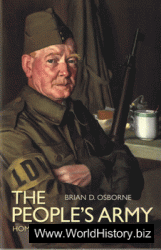Except in unguarded moments, there was the fiction that Stalin's orders were never his own but were those of the Central Committee. Stalin's orders were written on Central Committee stationery, sometimes with "J. Stalin” at the bottom but often without a signature.
Among the many victims of Stalin's purge of the party elite was the party boss of Kiev and candidate member of the Politburo, Pavel Postyshev. Postyshev was removed as Kiev party secretary in January of 1937. Stalin reserved Postyshev's fate for the January 1938 Central Committee Plenum, transcripts of which were distributed widely among party members.
The Plenum turned into an unscheduled attack on Postyshev. A series of Stalin cronies condemned him as "bankrupt” and "making crude mistakes for which the party must judge him.” Stalin remained silent throughout. At the end, Postyshev was given a chance to repent and begged for mercy:
I ask the plenum of the Central Committee to forgive me. I never consorted with enemies but I always have battled along with the party against enemies of the people with my whole Bolshevik soul. I made many mistakes, but I did not understand them.
Party members, reading the transcript, would conclude that Stalin was simply carrying out the wishes of others as he summed up the proceeding using the passive tense:
Here in the Presidium of the Central Committee or in the Politburo, as you wish, the opinion has been formed, that after all that has happened,
It is necessary to take some kind of measures in association with Comrade Postyshev. And it seems as if the following opinion has formed, that it is necessary to remove him as a candidate member of the Politburo, leaving him as a member of the Central Committee.7
Postyshev's case was turned over to the party control commission, which recommended his expulsion. Shortly thereafter he was arrested and shot.




 World History
World History


![Stalingrad: The Most Vicious Battle of the War [History of the Second World War 38]](https://www.worldhistory.biz/uploads/posts/2015-05/1432581864_1425486471_part-38.jpeg)






